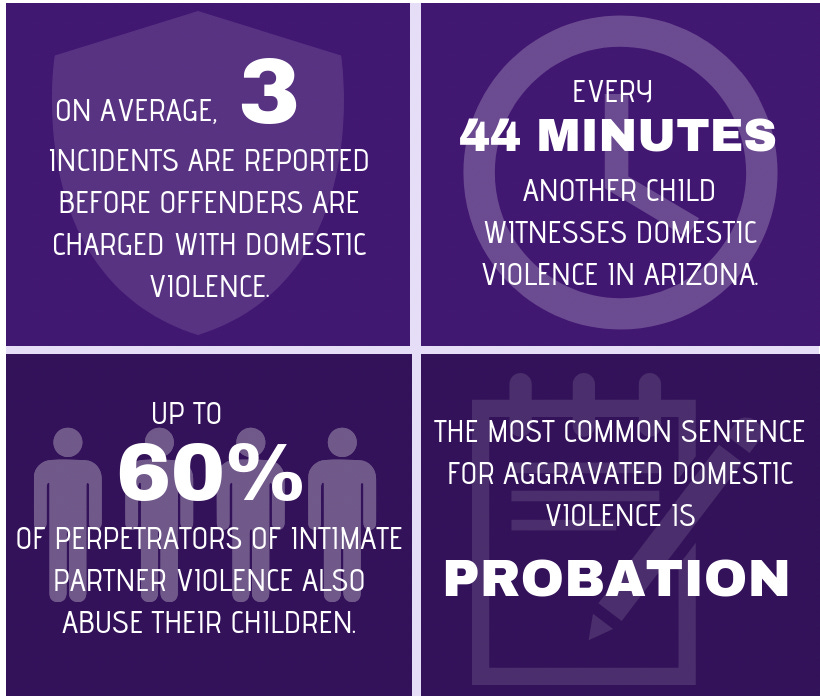The Daily Agenda: Added protection for domestic abuse survivors
A city court program is working to reduce domestic violence-related gun violence … It’s expanding the scope to include subjects of protective orders ... Worrying trend among corrections officers.
With close to a 1,000 felony cases involving domestic violence pending in Pima County Superior Court, a city court program is expanding its use of a law that prevents subjects of domestic violence protective orders from possessing firearms.
This is the latest step in Tucson City Court’s Domestic Violence Court’s decade-long efforts to improve the process and increase safety for survivors. It comes on the heels of the Supreme Court’s June ruling to uphold a federal law that prohibits people convicted of misdemeanor domestic violence charges who are the subject a protective order from having guns.
The effort is spearheaded by Judge Wendy Million, a City Magistrate who has presided over the specialty court since 2013 and serves as the chair of an Arizona Supreme Court Committee on Domestic Violence in the Courts.
Last month, Million received national recognition for her work with survivors when she was honored with the National Council of Juvenile and Family Court Judges’ Innovator of the Year award.
Million’s work has been instrumental in reshaping how domestic violence cases are handled, and she’s been active in pursuing grants and opportunities to improve the system and increase safety for survivors.

In 2022, Tucson City Court received a $500,000 federal grant to address the dangers posed by firearms in domestic violence situations. While city court only handles misdemeanors and orders of protection, data shows that these are often the precursor to more serious domestic violence-related incidents, especially when firearms are involved.
As of yesterday, the Pima County Attorney’s Office has 936 active felony cases this year where the defendant is facing at least one domestic violence charge, according to its data dashboard.
Tucson City Court’s Domestic Violence Court’s caseload fluctuates between 1,600 and 2,000 open cases at any given time, which includes between 200 and 300 cases that were declined for prosecution as felonies, but still high risk.
Million told the Tucson Agenda the funding has been crucial in developing and implementing strategies to enforce laws that remove firearms from individuals convicted of domestic violence misdemeanors and felonies, and now those who are under protective orders.
Tucson police and the courts have established a strong, trust-based relationship to ensure that firearms are securely handled, Million told the Agenda. But they also work hard to let the person turning in their guns know that they won’t be permanently taken away.
“When people admit they have guns, they turn them over. They know that the police are going to take care of them and not sell them or anything,” she said. “It's been trying to develop that trust (that) we're only taking the guns away for a certain amount of time and that kind of thing.”
TPD has been transferring firearms that were turned in or seized to the court. As of this year 50 firearms have been seized, with 87 seized last year. All together, 208 firearms have been taken away since the efforts started in 2019.
Million said that despite some roadblocks, their efforts have produced positive outcomes in criminal cases and she is optimistic that similar success will be seen with the expansion to protective orders.
“It's been a challenge to get everybody on the same page. There's a lot of trying to get different systems to work together,” she said, adding that most of the difficulties have been related to technology and staffing.
Those roadblocks include a nearly year-long delay in receiving the funds from the Department of Justice, which meant that they couldn’t begin intensive work on the project until last fall, but Million says significant progress has been made since they’ve gained access to the money.
This includes the court’s hiring of a dedicated advocate from local nonprofit Emerge Center Against Domestic Abuse, who solely supports survivors in high-risk domestic violence cases.
The court has also been able to hire a retired domestic violence detective as its firearms coordinator to help develop forms and processes related to guns. Million says Tucson police have been a key partner in ensuring that protective orders involving firearms are served and enforced swiftly.
The program also involves collaboration with community groups, including Goodwill of Southern Arizona, which is working with the police on a violence interruption program, and nearby tribal governments.
Because of the late start to the project, Million said the court may seek an extension of the grant to maximize its impact, adding that these federal funds have been crucial for covering overtime pay for TPD officers serving protection orders involving firearms.

Million is also taking her staff’s expertise to the national level, with the court having been awarded a $150,000 Mentor Court grant in 2023, allowing it to assist other courts across the country in establishing their own domestic violence courts.
The program covers travel expenses for Tucson City Court’s domestic violence team to mentor other courts, as well as bringing teams to Tucson for hands-on learning.
In recent years, Million and Emerge Executive Vice President and Chief Strategy Officer Anna Harper also resurrected the court’s fatality review committee, which is designed to examine cases and figure out where systems could improve their responses to domestic violence, not just the court.
But Million isn’t only focused on improving the experience for survivors. She’s also focused on making sure defendants are getting the best possible support.
“Lately, what we've been working on is making sure that our treatment providers are good quality, that they answer to the court and provide good reports,” Million said. “That has the impact on victim safety, too, because we want to make sure that men are working on change because a lot of times they're still with their partners after all of this.”
Because at the end of the day, the court case isn’t the end for many of these relationships, Million said. But she cautioned that it’s going to take more than just her court to bring about true, systemic change.
“These are couples that stay together a lot of times, even after this process. They love each other. (The survivor) just doesn't want the violence,” Million said. “Our focus has shifted a lot … to recognize that this is a community problem, that the way we're raising our men is problematic.”
Rash of deaths: Six corrections officers at the Pima County jail have died in the last eight months, the Tucson Sentinel’s Natalie Robbins reports. Corrections officers have to deal with more physical and mental illness than many other professions, and Sheriff Chris Nanos said the recent deaths “seem unusual.” But the department didn’t start tracking deaths of corrections officers, which include a recent drowning in Patagonia Lake, suicide, cancer, and other medical issues, until recently.
Union incoming: Workers at the Bookmans location on Speedway are trying to form a union, which would be the first union in the bookstore industry in the state, the Arizona Daily Star’s David Wichner reports. Workers said they worried about recent layoffs and cuts to benefits, among other concerns. They filed a petition to join the United Food and Commercial Workers Union Local 99 and an election date is expected in the next few weeks.
Medicinal sunlight: As the Tucson Medical Center turns 80 years old, KGUN’s Pat Parris traces the hospital’s history from the days before it became TMC. A century ago, the Desert Sanitorium, as the institution was known, used heliotherapy (sunlight) to treat tuberculosis. Several of the buildings used at the sanatorium were preserved and remain part of the UMC campus today.
New life: The building that housed the Tucson Citizen years ago will be the home of a South African bar, This is Tucson’s Jamie Donnelly reports. The Unicorn Zebra lounge is set to open later this week and the owners say it’s the “essence of Cape Town,” combined with local ingredients.
Position filled: The Pima County Board of Supervisors appointed Tracy Ethridge-Nielsen to fill the constable position in Precinct 4, which was left vacant when former Constable Oscar Vasquez was suspended and then resigned in May, the Star’s Charles Borla reports. Ethridge-Nielsen was the only candidate on the ballot for the office this year.
Thrown out: The family of slain Border Patrol Agent Brian Terry said they were “just shocked” to hear that an appeals court threw out the conviction of one of the seven men convicted in the 2010 fatal shooting near Rio Rico, KGUN’s Craig Smith reports. The appeals court said Heraclio Osorio Arellanes’ legal counsel was so bad that he didn’t know what he was doing when he confessed to U.S. officials in a jail in Mexico.
5,464: The number of people served by local nonprofit Emerge Center Against Domestic Abuse in 2023, according to its impact report. That includes 7,133 calls to the emergency hotline and 11,789 emergency shelter bed nights provided to families.








